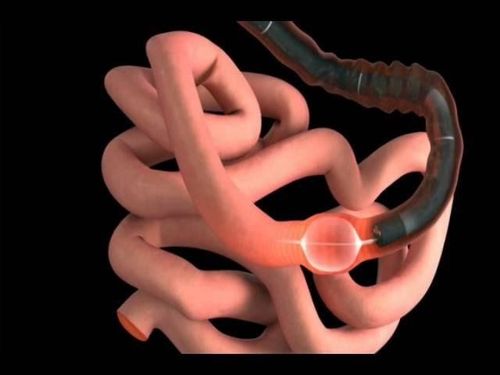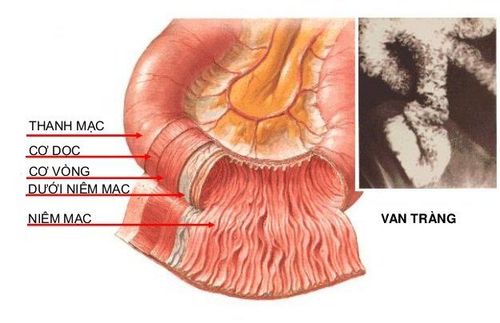This is an automatically translated article.
Digestive infections are one of the causes of malnutrition and weight loss. Scientists have studied and evaluated the addition of zinc and other micronutrients in the diet to prevent micronutrient deficiencies as well as treat gastrointestinal infections.
1. Zinc microelement is very necessary for the body
Zinc is an essential micronutrient for human metabolism, catalyzes more than 100 enzymes and helps regulate gene expression. Patients with malnutrition, alcoholism, inflammatory bowel disease and malabsorption syndromes are at increased risk of zinc deficiency.
Symptoms of zinc deficiency are nonspecific, including growth retardation, diarrhea, hair loss, glossitis, nail dystrophy, decreased immunity, and hypogonadism in men. In developing countries, zinc supplementation may be effective in preventing upper respiratory tract infections, diarrhea, and as an adjunct to diarrhea in malnourished children.
Zinc combined with antioxidants may be modestly effective in slowing the progression of age-related macular degeneration. At the same time, this is also one of the micronutrients used to effectively treat Wilson's disease.
Zinc is well tolerated at recommended dosages. Side effects of long-term use of high doses of zinc include suppressed immunity, decreased levels of high-density lipoprotein cholesterol, anemia, copper deficiency, and possible genitourinary complications.
Zinc is the second most abundantly distributed trace element in the body after iron. Zinc catalyzes enzyme activity, contributes to protein structure and regulates gene expression.
Zinc is found in many foods, such as beef, poultry, seafood, and whole grains. Zinc supplements typically contain 7 to 80 mg of elemental zinc, which is available as zinc oxide or a salt with acetate, gluconate, and sulfate.
Zinc supplements are commonly used to alleviate a number of medical conditions, including zinc deficiency, diarrhea, age-related macular degeneration, upper respiratory tract infections (URIs), slow wounds. and human immunodeficiency virus (HIV).
Zinc is absorbed in the small intestine. A long-term decrease or increase in zinc levels will cause serious effects on zinc stores in the body. Zinc is a cofactor for the generation of polymerases and proteases involved in many cellular functions (eg, wound repair, intestinal epithelial cell regeneration).
Zinc is also a cofactor for thymulin, a thymus hormone essential for the maturation of T lymphocytes. Zinc has antioxidant properties and may protect against macular degeneration from oxidative stress.

Kẽm là một trong các vi chất dinh dưỡng quan trọng cho quá trình trao đổi chất của con ngườ
2. Reasonable zinc supplement
Official recommendations for zinc supplementation to date include:
Zinc reduces the severity and duration of acute and chronic diarrhea in children. Zinc acetate is an effective maintenance therapy for Wilson's disease. Clinical zinc deficiency in adults should be treated with 2-5 times the recommended dietary intake of zinc. Zinc combined with vitamins C and E, beta-carotene can slow the progression of age-related macular degeneration. Mild zinc deficiency should be treated with zinc supplementation at 2-3 times the recommended dietary intake (RDA), while moderate to severe deficiency can be treated with 4-5 times RDA. The treatment should last for 6 months.
For acute diarrhea in malnourished children aged 6 to 36 months, 20 mg of elemental zinc per day has been used. To slow the progression of age-related macular degeneration, 80 mg of elemental zinc with 2 mg of copper per day is recommended in combination with 500 mg of vitamin C, 400 IU of vitamin E, and 15 mg of beta-carotene.
Although there are many essential roles in human physiology, there are no definitive data to support the use of zinc micronutrient supplementation in individuals with normal zinc status. However, zinc in combination with antioxidants may be modestly effective in slowing the progression of age-related macular degeneration.
Continuous zinc supplementation above tolerable levels is considered safe. Higher doses should be limited to short-term use because of the increased risk of gastrointestinal side effects, copper deficiency, anemia, and genitourinary complications.
3. Zinc and micronutrients combine to fight digestive infections
Inflammatory bowel disease (IBD) is associated with malnutrition and weight loss, although this has become less common with advances in treatment and greater patient remission rates. However, micronutrient deficiencies are still relatively common, especially in patients with existing small bowel disease and/or multiple resections.
Epidemiological observations and clinical findings support the notion that both undernutrition and overnutrition both impair gastrointestinal responses and alter susceptibility to inflammation or diseases. other.
Interactions of micronutrient intake, biochemical indices of nutritional status and 4 specific gastrointestinal infections are considered. These conditions include:
Celiac disease and concomitant micronutrient deficiencies caused by long-term use of the gluten-free diet. Micronutrients as an important determinant of immunity to 2 main types of inflammatory bowel disease: Ulcerative colitis and Crohn's disease. HIV/AIDS-associated diarrhea and concomitant micronutrient deficiencies may be aggravated by the initiation of highly active antiretroviral therapy. In summary, for each gastrointestinal infection, fortification of zinc and other micronutrients can improve immunity and minimize treatment side effects. However, the improvement of symptoms can take place for a long time, so it is recommended that parents be calm and persistent when supplementing with nutrients for their children, either through food or functional foods. In particular, the use of functional foods should choose those of natural origin that are easily absorbed, do not allow simultaneous use of many types or continuously change the types of functional foods.
To have more knowledge about taking care of children according to age, please visit the website (vinmec.com) regularly and make an appointment with the leading doctors, Pediatricians - Nutrition experts when you need advice.
References: pubmed.ncbi.nlm.nih.gov, europepmc.org, researchgate.net, aafp.org













